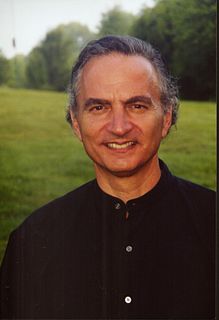A Quote by Ellen G. White
It is the chief joy of all holy beings to witness the joy and happiness of those around them.
Related Quotes
The Christian is not superficial in any sense, but is fundamentally serious and fundamentally happy. You see, the joy of the Christian is a holy joy; the happiness of the Christian is a serious happiness. ... it is a solemn joy, it is a holy joy, it is a serious happiness; so that, though he is grave and sober-minded and serious, he is never cold and prohibitive.
Normally we will say we are happy or we are unhappy. I have met some people who told Me, "Oh we went to that Guru we were very happy." I said, "You could be happy in the pub also. What is happiness?" Happiness is not the way to judge any one, neither unhappiness. Unhappiness comes to you through this super ego and happiness through this ego. But joy has no double face, joy is joy. In joy, you witness, you witness the whole thing. And when you are joyous you feel the whole thing, the joy itself coming on you like grace falling on to you. It's so beautiful that you just get lost into it.
The difference between shallow happiness and a deep, sustaining joy is sorrow. Happiness lives where sorrow is not. When sorrow arrives, happiness dies. It can't stand pain. Joy, on the other hand, rises from sorrow and therefore can withstand all grief. Joy, by the grace of God, is the transfiguration of suffering into endurance, and of endurance into character, and of character into hope--and the hope that has become our joy does not (as happiness must for those who depend up on it) disappoint us.
The Holy Spirit gives us joy. And he is joy. Joy is the gift in which all the other gifts are included. It is the expression of happiness, of being in harmony with ourselves, that which can only come from being in harmony with God and with his creation. It belongs to the nature of joy to be radiant; it must communicate itself. The missionary spirit of the Church is none other than the impulse to communicate the joy which has been given.
... whenever Christ, the Bridegroom of pure souls, is mystically united with each soul, He gives the Father occasion to rejoice over this as at a wedding. It is Christ Himself Who says, 'Joy shall be in heaven over one sinner who repents' (Lk. 15:7). For joy, according to the Apostle, is the fruit of the Holy Spirit (Gal. 5:22), Who through conversion brings back to Christ those living in repentance, and reunites them with Him. And this joy embraces both those in heaven and godly men on earth. That is why there is joy in heaven over one repentant sinner.
Joy is what we are, not what we must get. Joy is the realization that all we want or need in life has been etched into our souls. Joy helps us see not what we are "going through," but what we are "growing to"-a greater sense of understanding, accomplishment, and enlightenment. Joy reveals to us the calm at the end of the storm, the peace that surpasses the momentary happiness of pleasure. If we keep our minds centered on joy, joy becomes a state of mind.
Happiness is a state of non-contradictory joy--a joy without penalty or guilt, a joy that does not clash with any of your values and does not work for your own destruction, not the joy of escaping from your mind, but of using your mind's fullest power, not the joy of faking reality, but of achieving values that are real, not the joy of a drunkard, but of a producer.
Joy, happiness ... we do not question. They are beyond question, maybe. A matter of being. But pain forces us to think, and to make connections ... to discover what has been happening to cause it. And, curiously enough, pain draws us to other human beings in a significant way, whereas joy or happiness to some extent, isolates.
Joy is not the same as pleasure or happiness. A wicked and evil man may have pleasure, while any ordinary mortal is capable of being happy. Pleasure generally comes from things, and always through the senses; happiness comes from humans through fellowship. Joy comes from loving God and neighbor. Pleasure is quick and violent, like a flash of lightning. Joy is steady and abiding, like a fixed star. Pleasure depends on external circumstances, such as money, food, travel, etc. Joy is independent of them, for it comes from a good conscience and love of God.





































